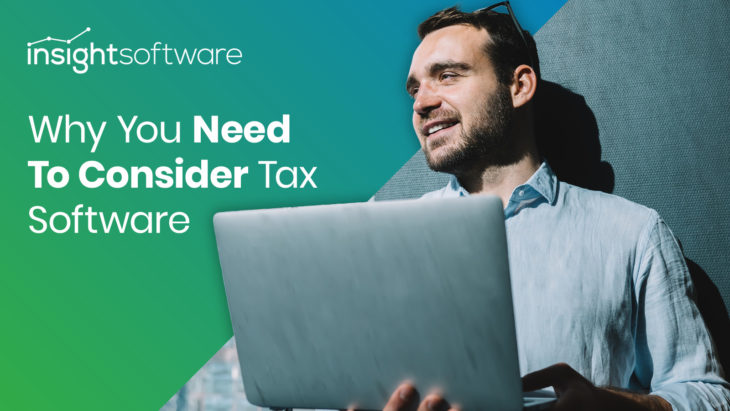Preparing for the Great Tax Reset: Transparency and Flexibility Will Be Key

A powerful blend of technology, political will, and regulation is driving forward a new era in global corporate taxation. A number of approaches are currently being proposed, underpinned by the need of governments worldwide to recoup funds in the wake of business assistance programs necessitated by the pandemic, including one that features measures as revolutionary as a common basic tax rate for every nation.
Read how to elevate tax to a strategic function
Learn why tax is playing an important part in enterprise risk management
This will introduce more change than just altering a tax rate, especially for large organizations that operate in multiple countries. As Deloitte writes, “The ‘global tax reset’—the environment of altered tax rules and public expectations spurred on by initiatives such as the OECD’s Base Erosion and Profit Shifting project—is causing tax leaders and other executives at multinational corporations to reassess their organizations’ approach not just to tax, but to how they choose to conduct business.”
Making Tax Fit for Purpose
Bodies from the Organization for Economic Co-operation and Development (OECD) to the International Monetary Fund (IMF) have pledged to modernize the global tax system, pointing out that the regimes currently in place are out of step with the digital era. Climate change is also driving urgent needs to encourage different corporate behavior.
“Looking back, the greatest historical driver of tax policy innovation has been war. The cost of World War I and post-war reconstruction helped create modern corporate taxation. Now, we face the two disastrous and very expensive crises of COVID and climate change,” says Kristalina Georgieva, head of the IMF. “These urgent needs, combined with a renewed spirit of multilateralism, give us a unique opportunity to rethink and fix the international tax system—to create a system that is truly fit for the 21st century.”
Meanwhile, the change in US politics has already seen some powerful statements from Janet Yellen, President Joe Biden’s treasury secretary and a former head of the Federal Reserve, as well as from the President himself.
In a speech to the Chicago Council on Global Affairs, Yellen put out a call for countries to agree on a global minimum tax rate for large companies. President Biden has proposed an increase in corporate tax from its current level of 21 percent to 28 percent, saying that “It’s time for corporate America and the wealthiest 1 percent of Americans to pay their fair share—just pay their fair share.”
The UK government, as well as raising the corporation tax rate from 19 percent to 25 percent with effect from1 April 2023, has signaled that it wants to build on the success of its Making Tax Digital (MTD) initiative applied to value added tax by extending it to all taxpayers, including corporates.
The government ran an open consultation with tax payers from 12 November 2020 to 5 March 2021, and says that the 10-year MTD initiative will help businesses as well as reduce the ”tax gap.” It writes: “The government wants to go further by extending modern services to more taxpayers and agents. In line with international best practice, these services will work closer to real time. This will enable taxpayers to have a more up-to-date understanding of, and certainty over their tax position and remove opportunities for error, ensuring the right tax is paid.”
Changing Over Time
As the UK government acknowledges, corporate tax reform cannot happen overnight. Careful consideration needs to be given to changes such as more regular payments, perhaps moving to a quarterly cadence. But it’s clear to see that the direction of future travel is only going to be one way, from current tax returns to something more akin to real-time reporting. Beyond that, there could be a move to information exchange direct from system to system.
It’s a vision outlined by the OECD’s Forum on Tax Administration (FTA) in a discussion document called Tax Administration 3.0: The Digital Transformation of Tax Administration. Again, it’s not a change that can be adopted soon. “Digital transformation of tax administration is a journey that will take many years,” says the FTA, “and requires many pieces to fit together to realize the full benefits. This includes co-development of many of the building blocks of future tax administration with other parts of government, with private sector actors, and internationally.”
As with global standards adopted within finance and accounting such as IFRS, the FTA hopes that its initiative will lead to “the establishment of a common language, framework, and end-point, which will assist tax administrations in their individual and collective consideration of the digital transformation journey.”
How Should Corporates Prepare for Change?
Preparing for the great reset, albeit one that may take years to fully implement, is likely to encourage corporations to take steps today. Doing so will mean that they will be in a better position to deal with change when it arrives.
Find out how Rockwell Automation reset its global tax systems
The most important element of this preparation will be to adopt a standardized software-based framework that enables the tax team to prepare and report on tax numbers across the whole organization.
By automatically merging data sources and converting values into a standardized single source of the truth, the overall framework will reliably provide consistent, consolidated numbers even when different jurisdictions are individually updated.
It also releases tax teams’ time to be spent on more valuable efforts: comparing tax data across reporting cycles, considering the implications of different scenarios, and feeding insights into future tax planning and forecasting.
If a tax team continues to be dependent on static spreadsheets and manual processes to make all the frequent updates we’re witnessing today, there will never be enough time in the day to see everything through. A tax software platform provides transparency, and is now the only rational way for corporations to address the current and future challenges they face.
Not only that, but they can see tax reform as an opportunity to simplify and strengthen tax planning and reporting, not as a threat. As Deloitte concludes, “Forward-thinking tax leaders can anticipate which data are likely to lead to more questions—insights that could fundamentally shape how they choose to share information, how to prepare the organization to respond, and more.”
Find out more about how you could use Longview Tax from insightsoftware to reshape your tax function. Book a demo, or drop us a line.

